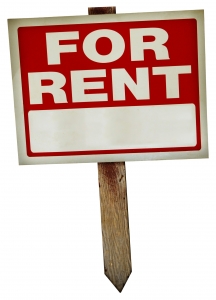On behalf of Law Offices of Richard Mucci posted in Business Litigation on Friday, January 4, 2013.

Landlords beware a Housing Court Judge has ruled that an owner of a mixed used residential/commercial building is “strictly liable” for a drunk tenant’s fall through a defective porch guardrail. The decision in Sheehan v. Weaver makes a landlord liable for the injuries of the tenants where there is a building code violation, regardless of whether the tenant was comparatively at fault as in the Sheehan case.
In Sheehan, the landlord owned a building with three residential apartments located above a commercial establishment. None of the apartments were owner-occupied. One of landlord’s residential tenants, Mr. Sheehan, fell through a porch guardrail, several stories onto the asphalt pavement below, suffering serious injuries. There was evidence that Sheehan was intoxicated, however, the connection of the guardrail to its post gave way because it was defective and in violation of the Massachusetts Building Code.
After a four-day trial in the Housing Court, a jury found for the tenant on the negligence claim, awarding approximately $145,000 after a 40% reduction for the plaintiff’s own negligence. The jury also found the landlord strictly liable, assessing $242,000 in damages.
The Massachusetts State Building Code provides for strict liability for any personal injuries caused by any building code violation at any “place of assembly, theatre, special hall, public hall, factory, workshop, manufacturing establishment or building.” The landlord argued that the primarily residential structure was not sufficiently commercial to be considered a “building” within the meaning of the Building Code’s strict liability provision. The Court disagreed and the Judge held “it is my opinion that the mixed residential-commercial four-unit non-owner-occupied structure in this case is ‘commercial’ and ‘public’ enough to fit within the term ‘building.'”
The imposition of strict liability under the Massachusetts Building Code resulted in the landlord being responsible for the full amount of the $242,000 judgment with no reduction for the tenant’s comparative negligence due to his intoxication.
The decision in Sheehan now expands the strict liability standard to mixed-use residential developments which have been popular the last few years to develop. This decision can be read as providing strict liability for anyone injured due to any type of building code violation, however minor in mixed-use residential developments. Property managers, landlords and developers should be aware of this ruling, and ensure that there are no building code issues which could cause harm to tenants.
Contact the Law Offices of Richard Mucci if you are a property manager, landlord or developer and have questions for an experienced construction attorney about potential liability for building code issues.

No Comments
Leave a comment